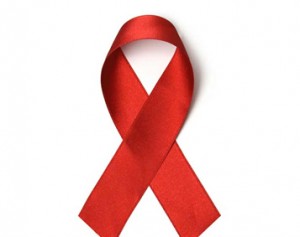Ghana to mark Zero Discrimination Day
 Ghana will on Tuesday March 1, join the rest of the world to mark Zero Discrimination Day on the theme: “Remove laws that harm, create laws that empower”
Ghana will on Tuesday March 1, join the rest of the world to mark Zero Discrimination Day on the theme: “Remove laws that harm, create laws that empower”
Zero Discrimination Day is an annual day celebrated on March 1 each year by the United Nations (UN) and other international organisations to promote equality before the law and in practice throughout all the member countries of the UN.
Zero Discrimination Day has a butterfly as a symbol, and it is widely used by people to share their stories and photos as a way to end discrimination and work towards positive transformation
Speaking to the Ghana News agency in an interview, the Director-General of the Ghana AIDS Commission, Dr Kyeremeh Atuahene said the day has been set aside to celebrate the right of everyone to live a full and productive life and live it with dignity and free from discrimination.
He explained that stigma and discrimination against Persons Living with HIV (PLHIV) in Ghana and remained a major human rights challenge in Ghana.
He explained that stigma and discrimination posed a significant threat to the fundamental human rights of PLHIV, which affected their ability to rent apartments, access healthcare, or further their education, affecting their everyday lives.
“According to the Ghana Statistical Service, percentage of Ghanaians expressing accepting attitudes towards PLHIV was only 8.5 among women and 14.8 among men in 2003. This increased to 11.4 and 19.2 respectively in 2008 and reduced to 8.0 among women and 14.6 among men in 2014, reversing to the 2003 levels,” he added.
The United Nations Programme on HIV/AIDS (UNAIDS) says, protecting the human rights of PLHIV and key populations requires a range of approaches to, “create social and legal environments that encourage people to take up and use HIV services” strengthening legal support services is one concrete action that can facilitate access when rights are violated, especially if a supportive legal environment exists.
Dr Atuahene explained that in Ghana, while the constitutional and legal framework provided equal protections and service access rights to all people, a 2010 legislative audit found out that the “current anti-discrimination laws in Ghana lacked the specificity to deal with HIV and AIDS discrimination.”
He reiterated that everyone had a responsibility to hold states accountable, call for change and contribute to efforts to remove discriminatory laws, adding that, despite increasing recognition of stigma and discrimination as drivers of the HIV epidemic, much remained to be done to ensure that PLHIV and other related diseases had access to critical goods and services.
Source: GNA
